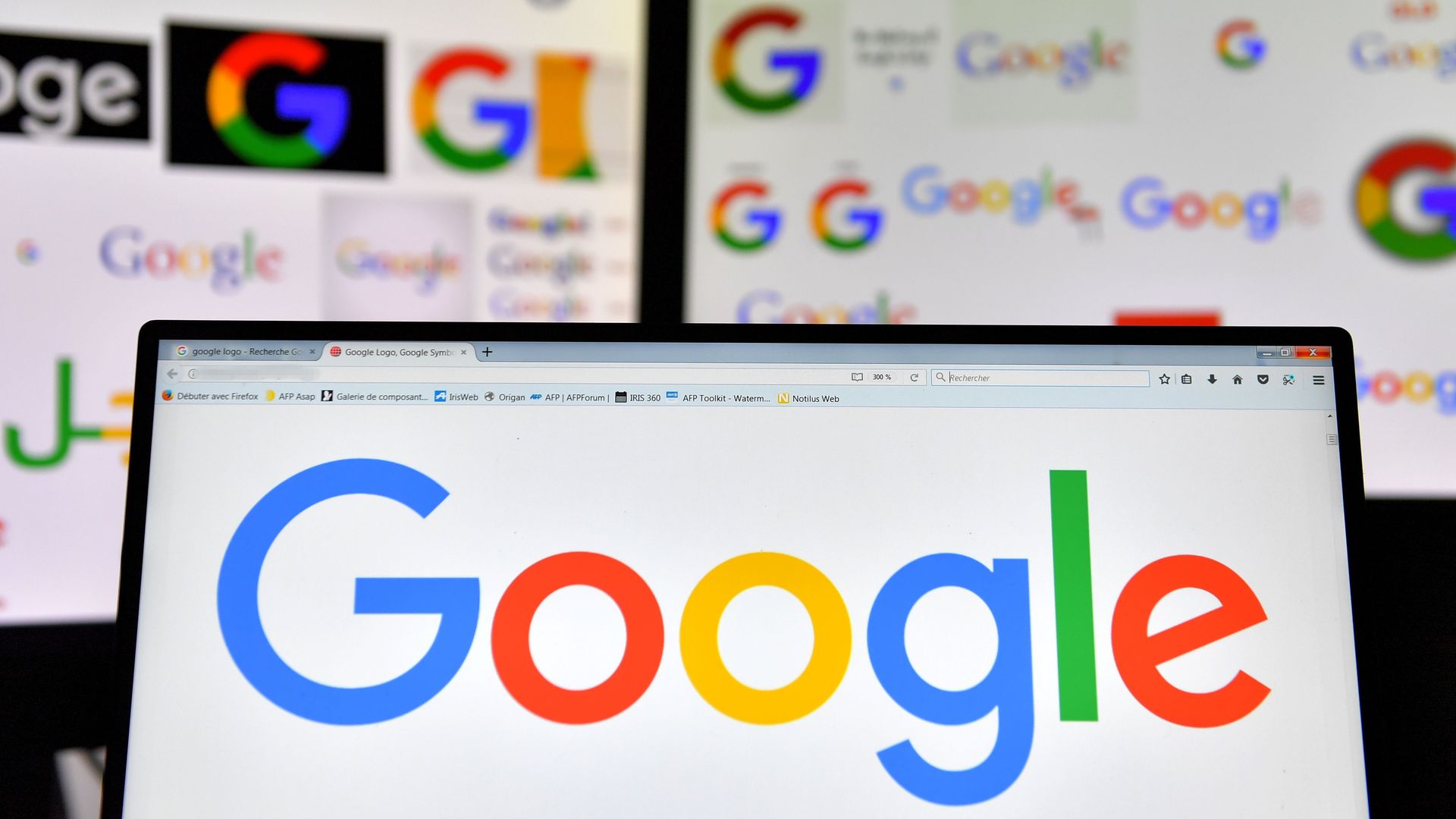Scoop: Google to block election ads after Election Day
Add Axios as your preferred source to
see more of our stories on Google.

Photo: Loic Venance/AFP via Getty Images
Google informed its advertisers Friday that it will broadly block election ads after polls close Nov. 3, according to an email obtained by Axios.
Why it matters: Big Tech platforms have been under pressure to address how their ad policies will handle conflicts over the presidential election's outcome.
- Facebook recently said that it will no longer accept new political ads for the week leading up to Election Day, but it will not block election ads after the polls close. It will, however, reject ads from U.S. political campaigns prematurely claiming victory before results have been declared, per Fast Company.
Driving the news: In the email, Google says that advertisers will not be able to run ads "referencing candidates, the election, or its outcome, given that an unprecedented amount of votes will be counted after election day this year."
- The policy, which is intended to block all ads related to the election, will apply to all ads running through Google's ad-serving platforms, including Google Ads, DV360, YouTube, and AdX Authorized Buyer.
- The ban will target ads that are explicitly election-related, as well as any other types of ads that reference federal or state elections within the ad, or ads that run based on targeting election-related search queries, including on candidates or officeholders.
- For reference, Google considers any ad an election-related ad if it mentions a current state or federal officeholder or candidate, political party, or ballot measure.
Between the lines: The company says it's informing advertisers of the process now so that they can prepare for the change.
- Ahead of the election, the company has also warned that an expected increase in election ad submissions will result in delays to the ad approval process.
- Google told advertisers they should expect up to 48 hours for ad creative approvals, "and we will not be able to expedite requests during that time given the volume."
The big picture: Google's announcement is in line with a broader strategy that the tech giant has been using for years to prevent confusion around sensitive events.
- For example, in March and early April, it implemented a temporary ban on advertising with COVID-19-related terms to prevent confusion from spreading around fake goods or price-gouging related to the pandemic.
- In the note, Google says that it's implementing the sensitive event policy for political ads after polls close in order to avoid confusion.
What's next: It's unclear at this point when the ban will be lifted. A source familiar with the policy says that the company will consider a number of different factors before lifting the ban, like how long it takes for all the ballots to be counted and whether or not there are major protests in light of the outcome.
- At this point, the source says, advertisers have been told that they should expect the ban to last for at least 7 days after Election Day, and that Google would review the situation on a weekly basis if it extends longer.
